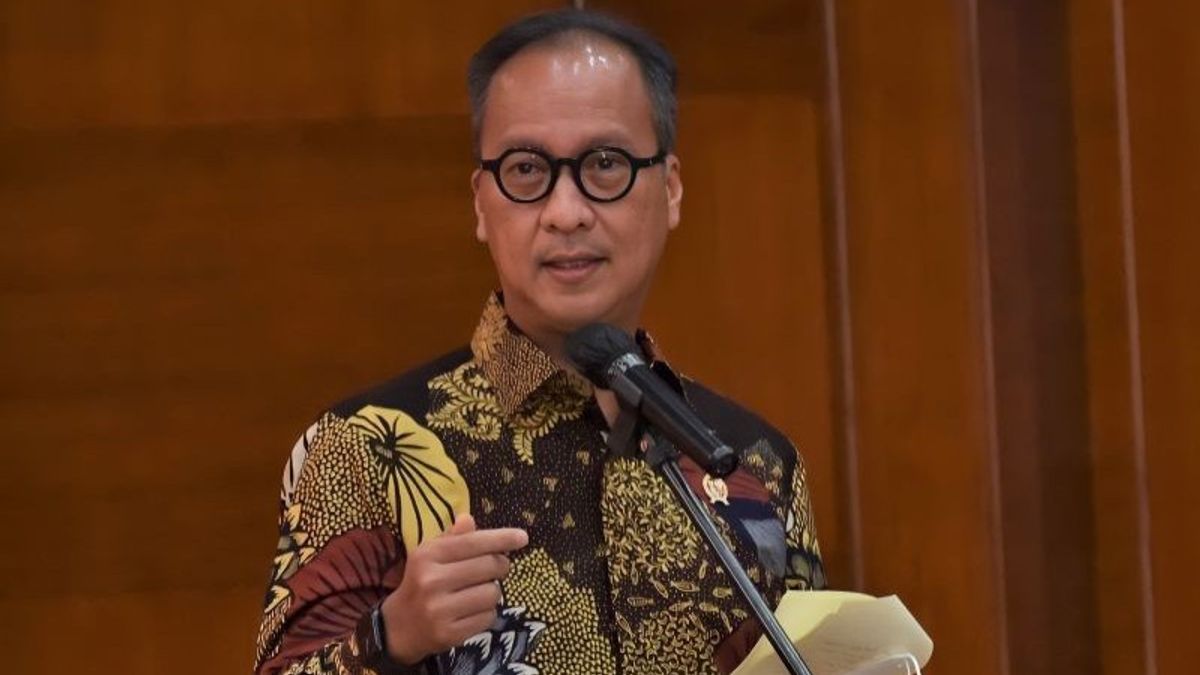JAKARTA - The Ministry of Industry (Kemenperin) said the non-oil and gas processing industry sector experienced a growth of 4.83 percent in the third quarter of 2022 or higher than the same period last year, which was 4.12 percent.
This indicates that the activities of the manufacturing sector in the country continue to stretch amid uncertain global economic conditions.
"Alhamdulillah, the growth of the manufacturing industry in the third quarter of 2022 was also 4.83 percent better than the previous period in the second quarter of 2022 which reached 4.33 percent," said Industry Minister Agus Gumiwang Kartasasmita in Jakarta, Tuesday, November 8.
The Minister of Industry gave his appreciation to industry players in Indonesia who are still passionate in the midst of the sluggish global economy.
In this case, the Ministry of Industry is determined to continue to strive to create a conducive business climate through the implementation of various strategic programs and policies.
Referring to data from the Central Statistics Agency (BPS), the non-oil and gas processing industry is a consistent sector in contributing the most to the national GDP.
In the third quarter of 2022, the contribution of the manufacturing sector reached 16.10 percent, an increase compared to the second quarter of 2022 at 16.01 percent.
"With a large contribution from the manufacturing industry sector, our economy continues to grow positively, which in the third quarter of 2002 reached 5.72 percent, higher than the previous quarter (5.45 percent). In fact, it increased its signature compared to the same period last year of around 3.51 percent. Indonesia has strong economic fundamentals compared to other countries," said Agus.
Several industrial sectors recorded brilliant growth performance in the third quarter of 2022, namely the basic metal industry which grew by 20.16 percent. This achievement was driven by increased iron and steel production and increased demand from abroad.
Furthermore, the machinery and equipment industry grew by 17.67 percent, followed by the metal goods industry, computers, electronic goods, optics, and electrical equipment (12.56 percent), as well as the transportation equipment industry (10.26 percent).
"The rapid growth in this sub-sector is due to the government's policy of increasing domestic demand, namely we are relaxing PPnBM which has a tremendous impact on the market and also the P3DN program which also encourages the absorption of domestic products," said Agus.
Next, industrial sub-sectors that are indicated to be affected by the weakening of the global economy, including the food and beverage industry, the chemical industry, pharmaceuticals and traditional medicines, the non-metal excavation goods industry, and the furniture industry.
"We will return the performance to be better. This slowdown is due to requests from abroad being disrupted due to global economic pressure, especially in Europe. In addition, the input is quite high, related to raw materials, both availability and price, one of which is because of the strengthening of the US Dollar," added Agus.
The English, Chinese, Japanese, Arabic, and French versions are automatically generated by the AI. So there may still be inaccuracies in translating, please always see Indonesian as our main language. (system supported by DigitalSiber.id)












